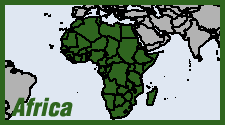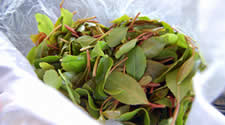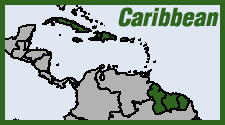 The brutal Boko Haram rebels are gaining ground at a frightening pace in northwest Nigeria, even mounting a bloody attack this week on the region's major city, Maiduguri. Reports are mounting that the exremist movement is funding its insurgency by exploiting Nigeria's strategic place as a crossroads of the global narco-traffick. BBC News on Jan. 25 asked "How have Nigeria's militants become so strong?" It cited the findings of the International Crisis Group that Boko Haram "has forged ties with arms smugglers in the lawless parts of the vast Sahel region." Plenty of its arms (including tanks and armored vehicles) have been plundered from the Nigerian army itself. But plenty more are thought to have come from Libya, where arms depots were looted when Moammar Qaddafi's regime was overthrown in 2011. Trafficking networks have been moving that plundered war material across the Sahel and Sahara, integrating the traffick into routes already established for moving drugs and other contraband between West Africa, Europe and Asia.
The brutal Boko Haram rebels are gaining ground at a frightening pace in northwest Nigeria, even mounting a bloody attack this week on the region's major city, Maiduguri. Reports are mounting that the exremist movement is funding its insurgency by exploiting Nigeria's strategic place as a crossroads of the global narco-traffick. BBC News on Jan. 25 asked "How have Nigeria's militants become so strong?" It cited the findings of the International Crisis Group that Boko Haram "has forged ties with arms smugglers in the lawless parts of the vast Sahel region." Plenty of its arms (including tanks and armored vehicles) have been plundered from the Nigerian army itself. But plenty more are thought to have come from Libya, where arms depots were looted when Moammar Qaddafi's regime was overthrown in 2011. Trafficking networks have been moving that plundered war material across the Sahel and Sahara, integrating the traffick into routes already established for moving drugs and other contraband between West Africa, Europe and Asia.

 2014 witnessed considerable fraying of the international Drug War consensus—but the horrific violence that finally sparked this long-overdue reckoning continued to take its grim toll. On the upside, Uruguay regsitered its
2014 witnessed considerable fraying of the international Drug War consensus—but the horrific violence that finally sparked this long-overdue reckoning continued to take its grim toll. On the upside, Uruguay regsitered its  The United Kingdom's ban on possession, sale and importing of khat took effect at the end of June, officially making the midly stimulating leaf a restricted
The United Kingdom's ban on possession, sale and importing of khat took effect at the end of June, officially making the midly stimulating leaf a restricted  At the semi-annual summit of the Caribbean Community (
At the semi-annual summit of the Caribbean Community (





Recent comments
1 week 3 days ago
2 weeks 3 days ago
6 weeks 3 days ago
10 weeks 1 day ago
14 weeks 2 days ago
15 weeks 11 hours ago
25 weeks 11 hours ago
29 weeks 22 hours ago
30 weeks 1 day ago
30 weeks 1 day ago